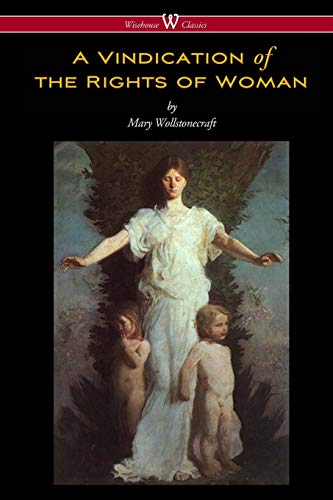-
A Vindication of the Rights of Woman
Mary Wollstonecraft
eBook (Dover Publications, June 7, 2012)In an era of revolutions demanding greater liberties for mankind, Mary Wollstonecraft (1759–1797) was an ardent feminist who spoke eloquently for countless women of her time.Having witnessed firsthand the devastating results of male improvidence, she assumed an independent role early in life, educating herself and eventually earning a living as a governess, teacher and writer. She was also an esteemed member of the radical intellectual circle that included William Godwin (father of her daughter, novelist Mary Godwin Shelley, and later her husband), Thomas Paine, William Blake, Henry Fuseli and others.First published in 1792, A Vindication of the Rights of Woman created a scandal in its day, largely, perhaps, because of the unconventional lifestyle of its creator. Today, it is considered the first great manifesto of women’s rights, arguing passionately for the education of women: "Tyrants and sensualists are in the right when they endeavor to keep women in the dark, because the former want only slaves, and the later a plaything."No narrow-minded zealot, Wollstonecraft balanced passionate advocacy with a sympathetic warmth — a characteristic that helped her ideas achieve widespread influence. Anyone interested in the history of the women’s rights movement will welcome this inexpensive edition of one of the landmark documents in the struggle for human dignity, freedom and equality.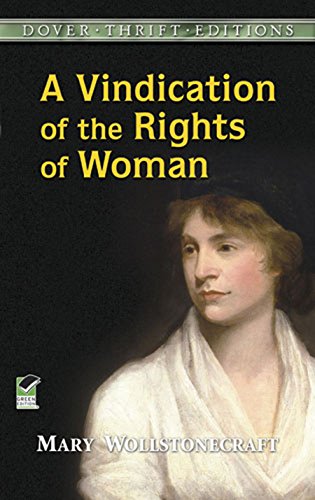
-
A Vindication of the Rights of Woman
Mary Wollstonecraft
eBook (Digireads.com, July 1, 2004)Arguably the earliest written work of feminist philosophy, Wollstonecraft produced a female manifesto in the time of the American and French Revolutions. This era induced many to reconsider not only the rights of men, but also of women, and none argued for female emancipation more eloquently or effectively than Wollstonecraft. Her strong use of analogy and philosophical language compared women of her day to both slaves and soldiers: forced to be docile and decorative. Wollstonecraft is passionate and candid as she lays out the principles feminine freedom, stating that education should be equal, there should be an end to the prejudices that proved so restrictive, and that women should be defined, not by their partner, but by their profession. Although received with both approval and anger, "A Vindication of the Rights of Woman" was ahead of its time, even modern, in its ideas, and it continues to be a foundational work for those who support women and equal rights.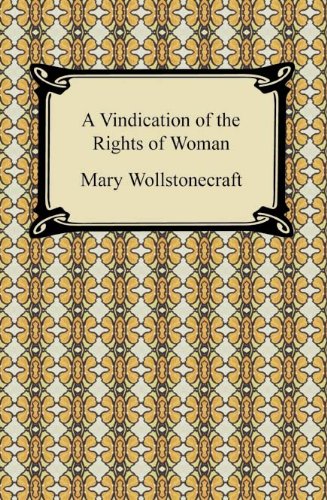
-
A Vindication of the Rights of Women
Mary Wollstonecraft
eBook (Endymion Press, April 4, 2018)Writing in an age when the call for the rights of man had brought revolution to America and France, Mary Wollstonecraft produced her own declaration of female independence in 1792. Passionate and forthright, A Vindication of the Rights of Woman attacked the prevailing view of docile, decorative femininity, and instead laid out the principles of emancipation: an equal education for girls and boys, an end to prejudice, and for women to become defined by their profession, not their partner. Mary Wollstonecraft's work was received with a mixture of admiration and outrage - Walpole called her 'a hyena in petticoats' - yet it established her as the mother of modern feminism.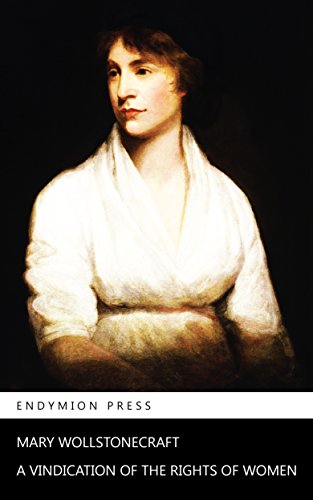
-
Vindication of the Rights of Woman
Mary Wollstonecraft, Sam Vaseghi
Hardcover (Wisehouse Classics, Oct. 22, 2017)A VINDICATION OF THE RIGHTS OF WOMAN: WITH STRICTURES ON POLITICAL AND MORAL SUBJECTS (1792), written by the 18th-century British feminist Mary Wollstonecraft, is one of the earliest works of feminist philosophy. In it, Wollstonecraft responds to those educational and political theorists of the 18th century who did not believe women should have an education. She argues that women ought to have an education commensurate with their position in society, claiming that women are essential to the nation because they educate its children and because they could be "companions" to their husbands, rather than mere wives. Instead of viewing women as ornaments to society or property to be traded in marriage, Wollstonecraft maintains that they are human beings deserving of the same fundamental rights as men. Wollstonecraft was prompted to write the Rights of Woman after reading Charles Maurice de Talleyrand-Perigord's 1791 report to the French National Assembly, which stated that women should only receive a domestic education; she used her commentary on this specific event to launch a broad attack against sexual double standards and to indict men for encouraging women to indulge in excessive emotion. Wollstonecraft wrote the Rights of Woman hurriedly to respond directly to ongoing events; she intended to write a more thoughtful second volume but died before completing it. While Wollstonecraft does call for equality between the sexes in particular areas of life, such as morality, she does not explicitly state that men and women are equal. Her ambiguous statements regarding the equality of the sexes have since made it difficult to classify Wollstonecraft as a modern feminist, particularly since the word and the concept were unavailable to her. Although it is commonly assumed now that the Rights of Woman was unfavourably received, this is a modern misconception based on the belief that Wollstonecraft was as reviled during her lifetime as she became after the publication of William Godwin's Memoirs of the Author of A VINDICATION OF THE RIGHTS OF WOMAN (1798). The Rights of Woman was actually well received when it was first published in 1792. One biographer has called it "perhaps the most original book of [Wollstonecraft's] century." (more on www.wisehouse-classics.com)"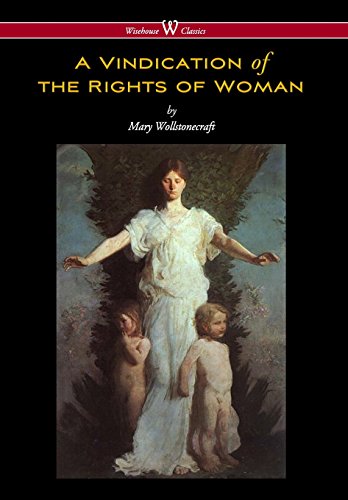
-
A Vindication of the Rights of Woman
Mary Wollstonecraft
eBook (Jazzybee Verlag, July 20, 2017)No feminism or feminist philosophy without "A Vindication of the Rights of Woman". Wollstonecraft argues not only that women ought to have the education of a woman should fit her position and role in society, but also that they are human beings and thus deserve the same fundamental rights as men.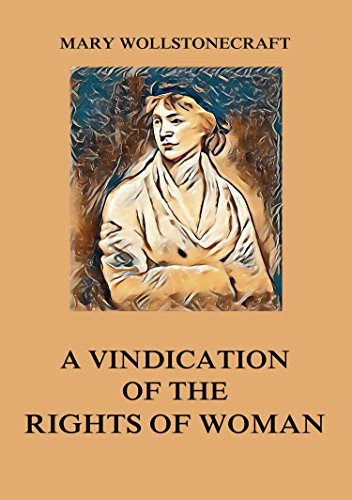
-
A Vindication of the Rights of Woman, With Strictures on Political and Moral Subjects
Mary Wollstonecraft
eBook (, July 15, 2013)This book is an illustrated version of the original A Vindication of the Rights of Woman, with Strictures on Political and Moral Subjects by Mary Wollstonecraft. We can scarcely avoid regret that one of such splendid talents, and high toned feelings, should, after the former seemed to have been fully developed, and the latter had found an object in whom they might repose, after their eccentric and painful efforts to find a resting place—that such an one should at such a time, be cut off from life is something which we cannot contemplate without feeling regret; we can scarcely repress the murmur that she had not been removed ere clouds darkened her horizon, or that she had remained to witness the brightness and serenity which might have succeeded. But thus it is; we may trace the cause to anti-social arrangements; it is not individuals but society which must change it, and that not by enactments, but by a change in public opinion. The authoress of the "Rights of Woman," was born April 1759, died September 1797.That there may be no doubt regarding the facts in this sketch, they are taken from a memoir written by her afflicted husband. In addition to many kind things he has said of her, (he was not blinded to imperfections in her character) is, that she was "Lovely in her person, and in the best and most engaging sense feminine in her manners."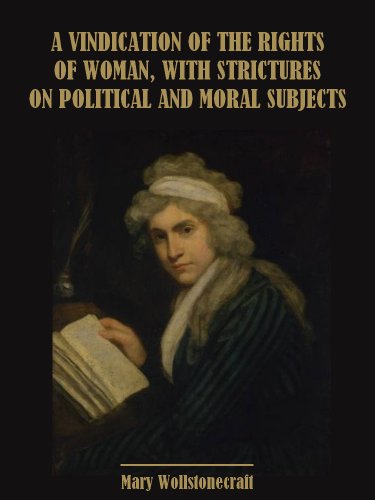
-
A Vindication of the Rights of Woman
Mary Wollstonecraft
eBook (, April 22, 2017)A Vindication of the Rights of Woman With Strictures on Political and Moral Subjects: Published in 1792, A Vindication of the Rights of Woman was the first great feminist treatise. Wollstonecraft preached that intellect will always govern and sought “to persuade women to endeavour to acquire strength, both of mind and body, and to convince them that the soft phrases, susceptibility of heart, delicacy of sentiment, and refinement of taste, are almost synonimous with epithets of weakness.”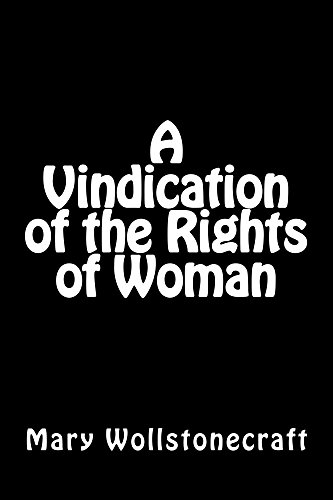
-
Great Ideas Vindication of the Rights of Women
Mary Wollstonecraft
Mass Market Paperback (Penguin UK, Feb. 1, 2005)Throughout history, some books have changed the world. They have transformed the way we see ourselves - and each other. They have inspired debate, dissent, war and revolution. They have enlightened, outraged, provoked and comforted. They have enriched lives - and destroyed them. Now Penguin brings you the works of the great thinkers, pioneers, radicals and visionaries whose ideas shook civilization, and helped make us who we are.
-
A Vindication of the Rights of Woman
Mary Wollstonecraft
eBook (Synapse Publishing, Feb. 19, 2019)In A Vindication of the Rights of Woman, Mary Wollstonecraft responds to those educational and political theorists of the 18th century who did not believe women should have an education. She argues that women ought to have an education commensurate with their position in society, claiming that women are essential to the nation because they educate its children and because they could be "companions" to their husbands, rather than mere wives. Instead of viewing women as ornaments to society or property to be traded in marriage, Wollstonecraft maintains that they are human beings deserving of the same fundamental rights as men. A controversial book seen for years as a seminal work for proto-feminism, now still at the center of the debate.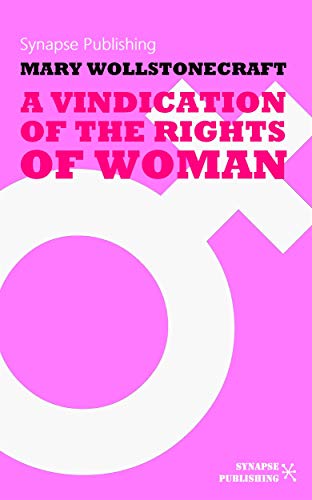
-
A Vindication of the Rights of Woman
Mary Wollstonecraft
eBook (Jovian Press, Nov. 22, 2017)Writing in an age when the call for the rights of man had brought revolution to America and France, Mary Wollstonecraft produced her own declaration of female independence in 1792. Passionate and forthright, A Vindication of the Rights of Woman attacked the prevailing view of docile, decorative femininity, and instead laid out the principles of emancipation: an equal education for girls and boys, an end to prejudice, and for women to become defined by their profession, not their partner. Mary Wollstonecraft's work was received with a mixture of admiration and outrage - Walpole called her 'a hyena in petticoats' - yet it established her as the mother of modern feminism.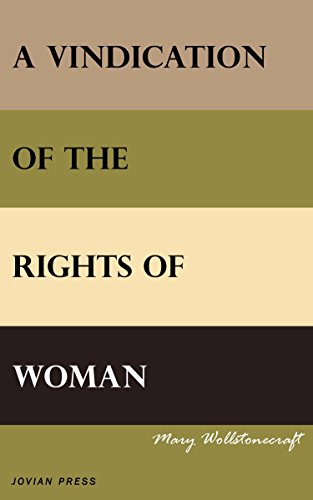
-
A Vindication Of The Rights Of Women
Mary Wollstonecraft
eBook (HarperTorch, Jan. 7, 2014)In her seminal text, A Vindication of the Rights of Woman, Mary Wollstonecraft crafts a masterful response to the inherently sexist public education system in eighteenth century England. Taking an uncommon position for her time, Wollstonecraft argued the importance of allowing young women equal access to the education system, and asserted that females, like their male counterparts, should be defined by their vocations and not their marital partners. Comparing the treatment of married women to that of property, Wollstonecraft keenly argued that men and women should be treated as humans equal in the eyes of God.Originally met with both criticism and respect, A Vindication of the Rights of Woman is regarded as one of the earliest examples of feminist literature and it continues to be studied to this day, over 200 years after its first publication.HarperTorch brings great works of non-fiction and the dramatic arts to life in digital format, upholding the highest standards in ebook production and celebrating reading in all its forms. Look for more titles in the HarperTorch collection to build your digital library.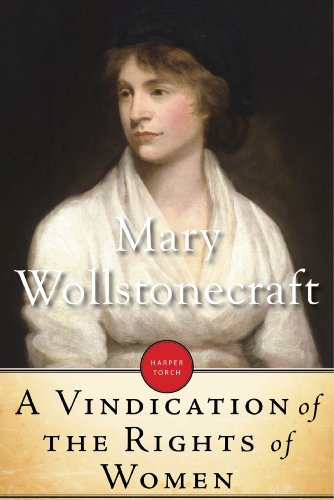
-
A Vindication of the Rights of Woman
Mary Wollstonecraft, Sam Vaseghi
Paperback (Wisehouse Classics, March 14, 2016)A VINDICATION OF THE RIGHTS OF WOMAN: WITH STRICTURES ON POLITICAL AND MORAL SUBJECTS (1792), written by the 18th-century British feminist Mary Wollstonecraft, is one of the earliest works of feminist philosophy. In it, Wollstonecraft responds to those educational and political theorists of the 18th century who did not believe women should have an education. She argues that women ought to have an education commensurate with their position in society, claiming that women are essential to the nation because they educate its children and because they could be "companions" to their husbands, rather than mere wives. Instead of viewing women as ornaments to society or property to be traded in marriage, Wollstonecraft maintains that they are human beings deserving of the same fundamental rights as men. Wollstonecraft was prompted to write the Rights of Woman after reading Charles Maurice de Talleyrand-Périgord's 1791 report to the French National Assembly, which stated that women should only receive a domestic education; she used her commentary on this specific event to launch a broad attack against sexual double standards and to indict men for encouraging women to indulge in excessive emotion. Wollstonecraft wrote the Rights of Woman hurriedly to respond directly to ongoing events; she intended to write a more thoughtful second volume but died before completing it. While Wollstonecraft does call for equality between the sexes in particular areas of life, such as morality, she does not explicitly state that men and women are equal. Her ambiguous statements regarding the equality of the sexes have since made it difficult to classify Wollstonecraft as a modern feminist, particularly since the word and the concept were unavailable to her. Although it is commonly assumed now that the Rights of Woman was unfavourably received, this is a modern misconception based on the belief that Wollstonecraft was as reviled during her lifetime as she became after the publication of William Godwin's Memoirs of the Author of A VINDICATION OF THE RIGHTS OF WOMAN (1798). The Rights of Woman was actually well received when it was first published in 1792. One biographer has called it "perhaps the most original book of [Wollstonecraft's] century". (more on www.wisehouse-classics.com)